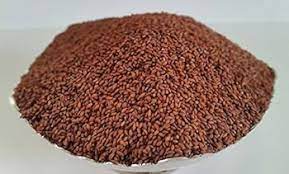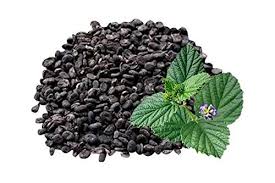
The Role of Ayurveda in Enhancing Mental and Emotional Health
In Ayurveda, mental and emotional health is seen as an integral part of overall well-being, where balance between the body, mind, and spirit is essential for good health. Ayurveda recognizes that each person’s mental and emotional state is influenced by the three doshas—Vata, Pitta, and Kapha. These doshas govern various physiological and psychological processes, and when they are out of balance, it can lead to mental health issues such as stress, anxiety, depression, and emotional instability.
The Ayurvedic approach to mental and emotional health involves understanding the unique constitution (Prakriti) of an individual and addressing imbalances with natural remedies, lifestyle adjustments, and dietary practices. By restoring balance to the mind and emotions, Ayurveda helps create a foundation for optimal mental health, fostering greater emotional resilience and clarity.
How Ayurveda Enhances Mental and Emotional Health:
-
Balancing the Doshas: Ayurveda teaches that imbalances in the doshas can lead to emotional and mental disturbances. For instance, an excess of Vata can cause anxiety, restlessness, and fear, while an imbalance of Pitta may lead to anger, frustration, and irritability. Kapha imbalance can contribute to feelings of sadness, lethargy, and depression. Ayurvedic treatments focus on restoring balance to these doshas through diet, herbs, meditation, and lifestyle practices tailored to the individual’s constitution.
-
Herbal Remedies for Mental Clarity and Calmness: Ayurveda offers a wide range of herbs known for their calming and mood-balancing effects on the mind. Some of the most powerful herbs for mental and emotional well-being include:
- Ashwagandha: Known as the “king of adaptogens,” Ashwagandha helps reduce stress and anxiety, promoting mental clarity and emotional stability.
- Brahmi: This herb is revered for its ability to enhance cognitive function, reduce stress, and improve memory and concentration.
- Jatamansi: A calming herb that helps manage anxiety, depression, and insomnia, Jatamansi promotes deep relaxation and emotional balance.
- Tulsi: Also known as Holy Basil, Tulsi is an adaptogen that helps the body adapt to stress, reduce anxiety, and improve mood.
- Shankhapushpi: Used to enhance brain function, alleviate mental fatigue, and calm the mind, Shankhapushpi supports emotional well-being.
-
Ayurvedic Practices for Emotional Resilience: Ayurveda emphasizes lifestyle practices that promote mental and emotional health. These practices include:
- Meditation and Mindfulness: Regular meditation helps calm the mind, reduce stress, and promote emotional stability. Ayurveda suggests practices such as pranayama (breathing exercises) and dhyana (meditation) to balance the mind.
- Abhyanga (Ayurvedic Oil Massage): Abhyanga, the practice of self-massage with warm herbal oils, is known to soothe the nervous system, reduce stress, and promote emotional well-being.
- Yoga: Yoga, a central practice in Ayurveda, helps balance the mind and body. It enhances flexibility, reduces tension, and promotes mental clarity.
- Ayurvedic Sleep Practices: Proper sleep is essential for mental health. Ayurveda recommends calming evening routines and herbs like Valerian root to promote restful sleep, which is crucial for emotional stability.
-
Diet for Mental Health: Ayurveda emphasizes the importance of a balanced diet for mental and emotional well-being. Foods that nourish the mind and balance the doshas include:
- Warm, cooked foods: Foods that are easy to digest, such as soups, stews, and rice, are recommended for balancing Vata and promoting mental calmness.
- Spices: Spices like turmeric, cinnamon, and cardamom are known for their anti-inflammatory and mood-balancing properties.
- Oily foods: Healthy fats from nuts, ghee, and seeds support brain function and promote emotional resilience.
- Fresh fruits and vegetables: Fresh produce helps detoxify the body and provides essential vitamins and minerals that support mental clarity and emotional balance.
-
A Holistic Approach to Mental Well-being: Ayurveda views mental health as closely intertwined with physical health, lifestyle, and spiritual practices. A holistic approach to well-being includes nurturing the mind, body, and spirit through balanced daily routines (Dincharya), proper self-care, and the cultivation of inner peace through practices like gratitude and mindfulness.
-
Addressing Stress and Anxiety: Ayurveda offers targeted remedies for managing stress and anxiety, two of the most common mental health concerns in today’s society. Herbs like Ashwagandha, Brahmi, and Tulsi help the body adapt to stress, while meditation, yoga, and pranayama techniques provide mental clarity and calm. Additionally, Ayurvedic dietary recommendations help stabilize mood and reduce the negative effects of stress on the body and mind.
Key Benefits of Ayurveda for Mental and Emotional Health:
- Reduced Anxiety: Ayurvedic herbs and practices help calm the mind and reduce feelings of anxiety and nervous tension.
- Enhanced Mental Clarity: Regular use of Ayurvedic remedies improves focus, concentration, and cognitive function.
- Emotional Balance: Ayurveda promotes emotional resilience, helping individuals better cope with stress, frustration, and emotional fluctuations.
- Improved Sleep: Ayurvedic treatments encourage restful sleep, which is crucial for mental health and emotional stability.
- Stress Relief: Ayurvedic practices help manage chronic stress and prevent burnout, allowing for emotional and mental rejuvenation.













